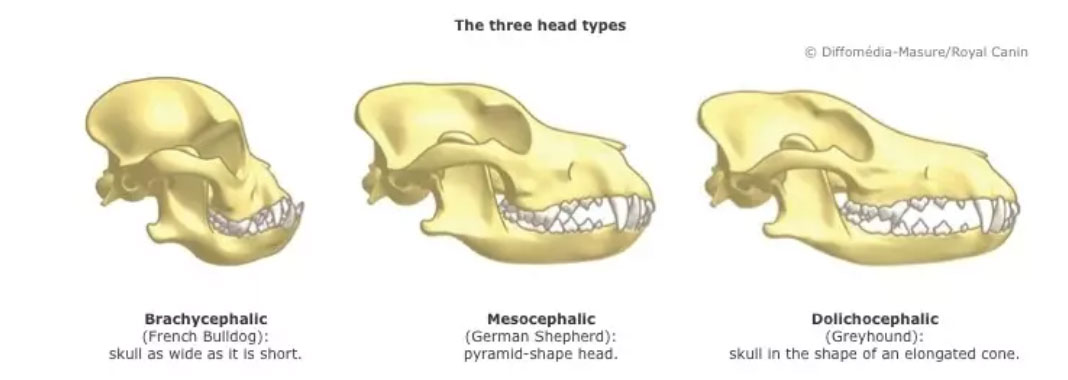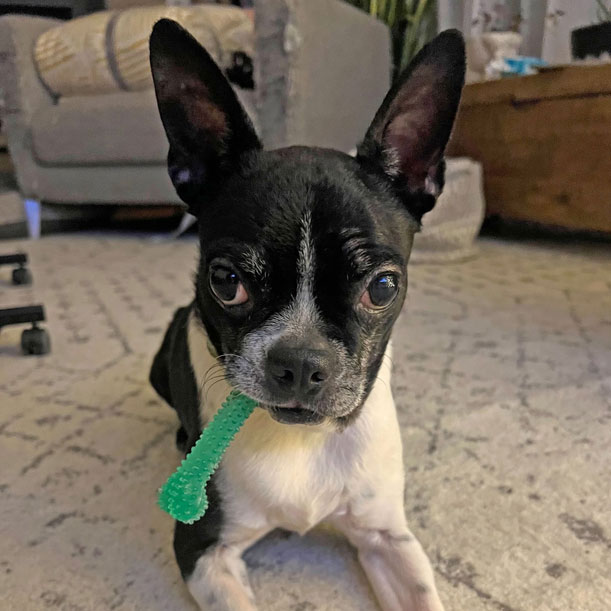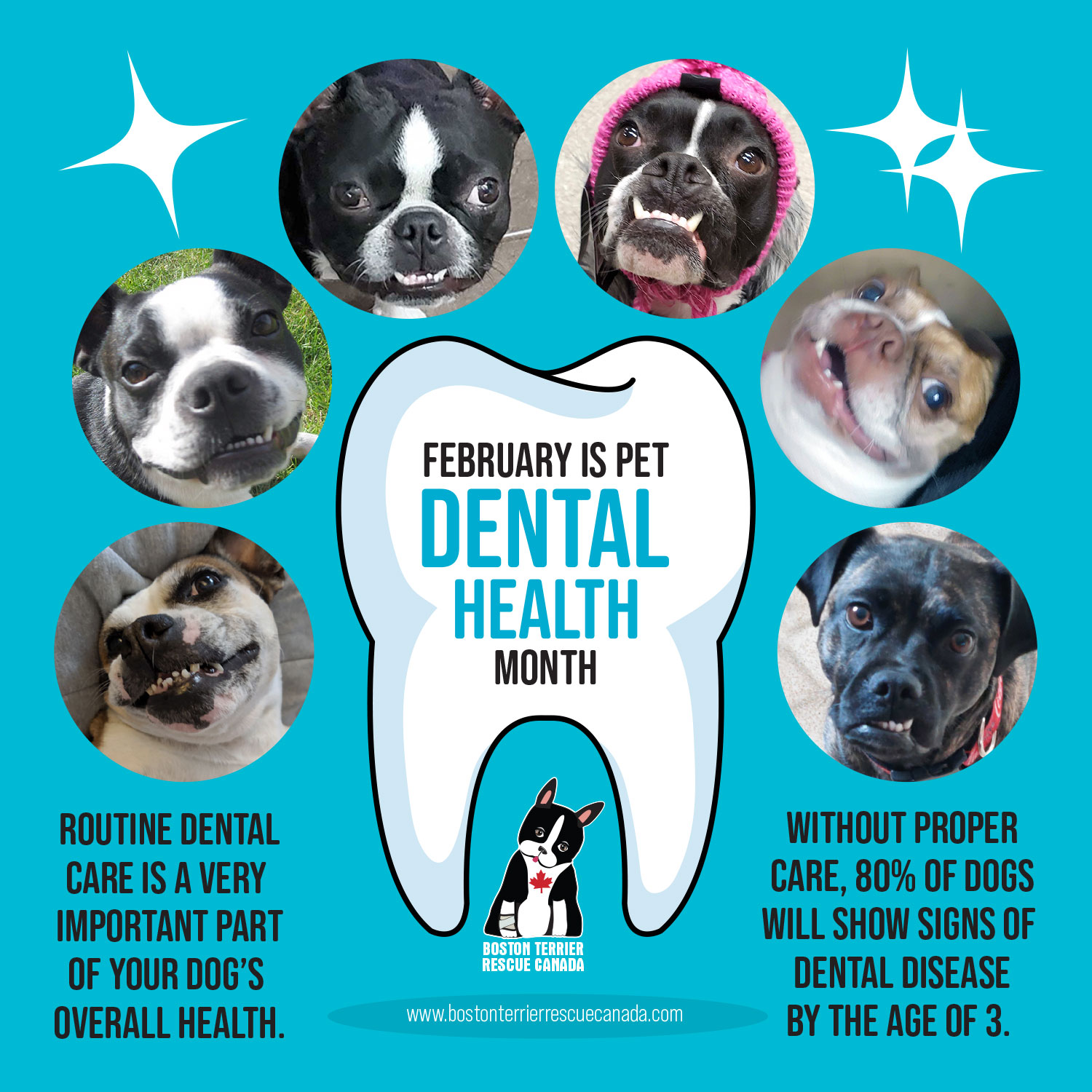[cmsms_row][cmsms_column data_width=”1/1″][cmsms_text]
Brusha, Brusha, Brusha and other ways to Maintain your Dog’s Pearly Whites
We all know, an unhealthy mouth can easily lead to a number of potentially life-threatening illnesses, a risk that is only compounded for brachycephalic breeds like Bostons. It’s a matter of simple square footage. Their smaller mouths have less space for the still very much required 42 teeth. Think of it as trying to park a truck in a space reserved for a mini.

Less Space = Increased Opportunity for Problems
This lack of space often leads to overcrowding, rotation of teeth and misalignment. Even Bostons with GOOD teeth will likely require some form of dental intervention in their lifetime. Unfortunately, we at BTRC know this far too well, since a number of dogs in our care require extensive dental surgery to ready them for their forever homes.
Neglected oral hygiene in any breed can lead to issues like tartar build-up, gum disease, bad breath and other larger health issues like heart disease, lung disease and kidney disease. So it is important to determine a good dental routine for your dog.
Brush your dog’s teeth
Yep, just like you, your dog’s teeth should be brushed twice daily (a minimum of three times weekly). Speak to your vet or your local pet store who can recommend a variety of canine toothbrushes and toothpaste to get the job done. If your dog is less inclined to brushing, they can also recommend water additives and special dental treats and enzymes to support your efforts.
Dog Toys and Chews
The good news? The act of chewing actually benefits your dog’s oral health, in and of itself, regardless of what is being chewed on. Any toy you choose will have a positive effect, but if you want to up your dental game, look for those labeled and designed specifically for oral health.

Mister (fka Radar) loves to gnaw on a dental bone now after his dental while in foster with BTRC!
Veterinary Cleaning
Speak regularly with your Veterinarian about your Boston’s oral health. Most will require a veterinary cleaning at least once in their lifetime – if not more (likely every 2 years as they age from adult to senior). These procedures require sedation and are best complimented by complete dental X-rays which are the only way to find and address any major dental issues that might be festering below the surface. Two-third of a dog’s tooth is under the gum line.
Whatever you do, dogs like routine – so the more often you take the dental lead, the more successful you will be in preventing bigger issues while gaining a lifetime of happy, healthy Bostons. Interested in supporting the dental dreams of Bostons in foster? Click here to donate.
Health Disclaimer: This post is educational in nature and doesn’t constitute health advice. Please always consult your pet’s veterinarian or other healthcare professionals for specific guidance on any topic related to your pet’s health.
[/cmsms_text][/cmsms_column][/cmsms_row]
Last modified: February 16, 2022


